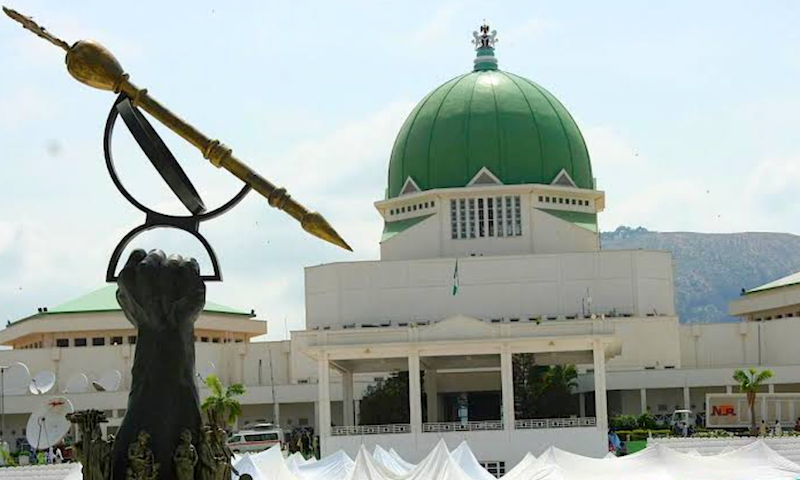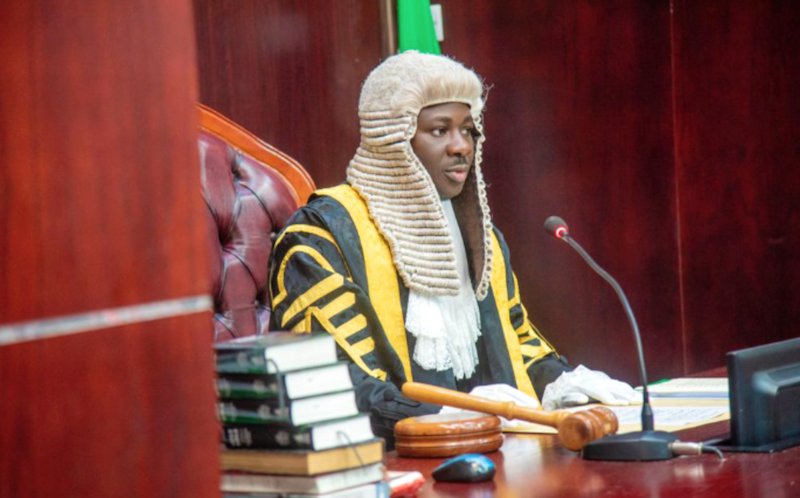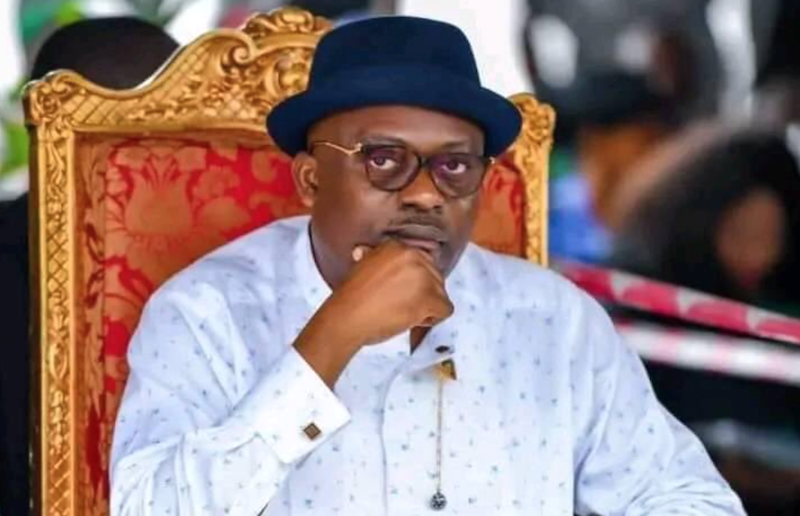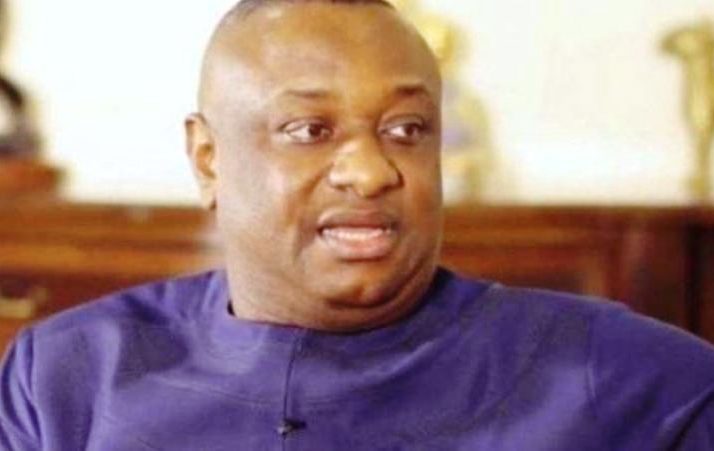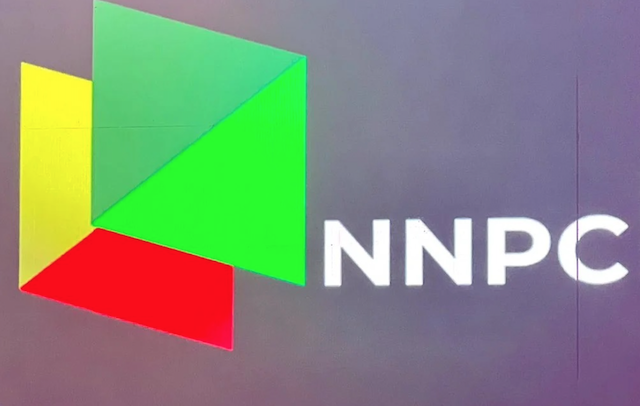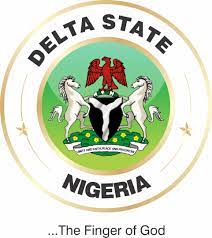I would like to begin by unequivocally stating that it is imperative for Nigerians to abandon the notion that our country is inherently affluent merely due to the substantial hydrocarbon deposits beneath its soil.
The assertion above is underscored by a sobering truth which is that with a population exceeding 200 million, a budgetary allocation of N27.5 trillion ($33 billion), and an anticipated annual income of N18.32 trillion by 2024, even as Nigeria is weighed down by a debt portfolio of N88 trillion and grappling with an inflation rate officially acknowledged at roughly 27% (though practically surpassing 30%), she cannot be characterized as affluent.
In light of these realities, it becomes imperative to acknowledge that Nigeria, in practical terms, qualifies as a less affluent nation. This becomes apparent when contrasting its projected income of N18.32 trillion within a budget of N27.5 trillion ($33 billion) intended to cater to a population exceeding 200 million with the resources and budgets of its counterparts.
Considering the factors mentioned above, the size of Nigeria’s budget for 2024 which falls short of expectations of some Nigerians , especially given the substantial size of its population, is nonetheless a veritable example of the aphorism:cut your coat according to your size.
Obviously Nigeria’s budget size in 2024 is a clear case of not cutting one’s coat according to one’s size simply because although Nigeria is big, she currently does not have enough cloth (Income)to fit her large size . Hence, the authorities are demure rather than bullish in their 2024 budget estimates/proposal.
This is particularly evident when the size of our 2024 budget is compared with peer countries such as South Africa with about 60m people having a budget of $132 billion, and Egypt’s $97 billion budget that will drive her economy with a population of 109m.
It is imperative that government officials address the issue of excessive spending, which has been fueled by a longstanding misconception of our nation’s affluence. Since the advent of multi-party democracy in 1999, financial recklessness has become a prevalent characteristic of governance in our beleaguered country.
The inclination towards unrestrained expenditures by public officials is pervasive throughout the various tiers of government, encompassing national, sub-national, and local/council levels. This trend spans from the federal government at the apex to the state government in the middle and, finally, to the local and council governments at the grassroots level.
It also applies to the three branches- executive, legislative and the judiciary which has been receiving a lot of flaks following the allegations of massive exchange of fiduciary favors between members of the political class, the bar and the bench.
In the context of our evolving democracy, there is a growing imperative for leaders at all levels of government to exercise prudence in managing our limited resources. This imperative is driven by the escalating political awareness among Nigerians, signaling a new era of activism aimed at fostering responsible governance.
The prevailing sentiment among Nigerians reflects a commendable shift towards a more critical assessment of public office holders as citizens are expressing deep concern and disapproval regarding the misuse of our collective resources by certain officials.
This disapproval is particularly directed at their imprudent allocation of funds towards extravagant purchases, such as luxury vehicles and seemingly trivial expenses like office perfumes, portraits of governors, and lavish meals in government houses. Additionally, there is a growing discontent with non-essential travel expenditures.
This discontent is manifesting through a heightened public outcry, indicative of the widespread dissatisfaction with the perceived mismanagement of public funds.
The timing of this outcry is noteworthy, occurring at a time that a very keenly contested general elections is just being concluded and against the backdrop of a challenging economic environment exacerbated by the removal of subsidies on gasoline and the cessation of naira arbitrage initiated by the previous administration approximately six months ago, following the assumption of power on May 29th.
The current administration has implemented significant policy measures with the objective of instilling fiscal discipline in the management of the ailing economy. While these measures are anticipated to yield long-term benefits, they have, in the interim, exacerbated the plight of many Nigerians, contributing to a further decline in socioeconomic conditions.
Notably, a survey conducted by the World Bank under the auspices of the previous administration revealed that approximately 133 million out of Nigeria’s total population of 200 million plus were already identified as multidimensionally poor.
The urgency to address this alarming situation is underscored by the pressing need to mitigate the immediate impact of the policy changes on vulnerable segments of the population.
Palliatory measures such as direct cash transfer to the poorest in society have been made, and arrangements are in top gear for the adoption of Compressed Natural Gas,CNG which is cheaper than petrol to power mass transit vehicles to ease the burden of high costs of transportation on the masses.
The current reality of our nation reveals a wealth of human resources, boasting a population exceeding 200 million. Additionally, our country is abundantly endowed with natural resources, including oil, gas, gold, uranium, lithium, and more.
However, despite these assets, Nigeria currently faces a financial challenge that hinders it from being considered a wealthy nation. The projected revenue for 2024 is estimated at less than N20 trillion, specifically N18.32 trillion.
This financial standing is notably modest when compared to other oil – and gas-rich countries with substantial hydrocarbon deposits.
For instance, countries such as Saudi Arabia, with a population of nearly 36 million has 11004 OPEC production quota , the United Arab Emirates (UAE) with almost 10 million population has 3, 179, and Kuwait with a population of just under 3 million has 2,811 allocation by OPEC can be said to posses huge oil wealth.
That is in the Arabian world.
In Europe, the likes of Norway with 5.4 million population produce 1,704 just as Denmark with slightly less than 6 million people produces 64. 6 million barrels per day in the Scandinavian region ,therefore, both countries can also be described as having oil affluence.
Their relatively smaller population is why they all surpass Nigeria in terms of financial prosperity.
That is even more so that Nigeria’s population which is in excess of 200m dwarfs the population of all OPEC member countries , and worse still, she is hardly able to meet her relatively small OPEC quota of 1.8m barrels per day.As such ,lack of transparency/fraud in the oil/ gas sector has been stifling her and preventing her from attaining her growth potentialls..
Not many Nigerians are aware that Nigeria is not amongst the top ten crude oil producing countries in the world.
The USA is the number one producing 21%. She is followed by Saudi Arabia with 13%, and then Russia is in the 3rd position at 10%.
Canada is in the 4th position with 6% and lraq at 5% and China at the same 5% with lraq shares the 5th position.
The UAE is the 6th at 4%, which is a position she also shares with lran that equally produces 4%..
Brazil with 3% is ranked 7th with Kuwait, which is also ranked 7th with a 3% production capacity, which is at par with Brazil.
So, when assessing our fossil fuel (crude oil) production, which stands at less than the 1.8 million units per day allocated to our country by the Organization of the Petroleum Exporting Countries (OPEC), it becomes evident that we consistently fall short of meeting this quota hence our projected income is less N18.32 trillion . This shortfall is primarily attributed to the rampant theft of our crude oil (main foreign exchange earner for our country) by organized syndicates in recent times.
In juxtaposition, with our considerable population exceeding 200 million, it should prompt reflection among those inclined to expend our shared resources recklessly. Recent revelations by civil society organizations including one- man- riot- squads like Doherty in lagos state that have delved into details of how public funds are utilized or abused underscore the lack of prudence exercised by our governments at all three levels in the allocation of public funds.
These expositions are manifestations of the fact that Nigeria is truly an economically challenged nation. Consequently, public officials ought to adopt a frugal approach to the utilization of our lean resources. This desired shift towards fiscal responsibility is imperative for the sustainable management of our nation’s wealth.
Well before the current outcry regarding the repetitive frought with fraud budgetary patterns observed in both the national and state governments of Nigeria, where a notable imbalance is evident with a predominant focus on recurrent expenditures (amounting to N18.51 trillion) overshadowing the capital components (valued at N8.7 trillion), it is apparent that our nation’s economic trajectory is leaning more towards consumption than production.
All these years that this pattern of budgeting has persisted , I have been diligently striving to advocate for a transformative shift in our leadership culture, emphasizing the importance of setting a precedent through exemplary leadership driven by patriotic goals of inclusive and all encompassing prosperity and progress of the critical mass of Nigerians.
My endeavors were aimed at redefining the metrics by which we gauge growth and progress in both our economy and country. Central to this recommended paradigm shift is the promotion of job creation as a primary indicator, fostering the generation of wealth as a consequential outcome.
To revisit the duration during which the national economy had prioritized consumption over production and to emphasize the ongoing disillusionment among Nigerians who have eagerly anticipated the proverbial dividends of democracy without tangible results, it is pertinent to recall my 2016 article that was widely in several mainstream and digits media platforms titled: “Let’s Judge Governments By Jobs Created.”
This retrospective analysis aims to provide context and insight into the prevailing circumstances. Originally composed and published in April 2016, the article advocates for a critical evaluation of governments based on their capacity to generate employment.
This perspective, as articulated in the piece, remains pertinent and applicable in the current landscape. The central argument posits that job creation serves as a pivotal criterion for assessing governmental effectiveness, a sentiment that continues to resonate with the general populace.
Here we go:
“A couple of years ago, the Nigerian economy was growing at between 6 and 7 per cent GDP rate. This was probably due to the fact that crude oil/gas, Nigeria’s main export earner, attracting 90 per cent of foreign exchange, FX income and which constitutes about 11 per cent of her GDP, was trading at over $100 per barrel.
The most probable reason is that the oil boom and Nigeria’s forex reserve, which at one point was estimated at about $60 billion attracted international portfolio and equity investors, who came in droves to buy Nigerian bonds which had a mouth-watering yield of about 12 per cent – an impossibility in the industrialised world.
By their very nature, portfolio investors are exactly what their name indicates – mere portfolio/briefcase carrying businessmen trading in papers and other intangible financial instruments as opposed to entrepreneur investors, who bring in machines and other equipment used for factory production of goods and in the process, create employment for Nigerians.
Obviously, for many years, Nigeria had very few entrepreneurs as Foreign Direct Investments (FDI) in the real economy, but attracted hordes of portfolio/equity funds managers, who take flight with their investments at the slightest suspicion of instability like oil price volatility or conflicts in the polity arising from political differences leading to tension.
Nigeria also quickly booked a spot in the popular JP Morgan price index, owing to the excellent return on investments in bonds as opposed to manufacturing, the economy was thus adjudged to be growing at attractive GDP levels of 6 to 7 per cent earlier mentioned.
Unfortunately, it was only on paper that the growth was being recorded as new factories were really not being set up as such neither were more people being gainfully employed, which is really what governance, political leadership and progress in a society are about.
In that period, international trade was flourishing so well that trading in treasury bills/bonds and other financial instruments was the trend, and importation of goods rather than manufacturing; gaming the system via fake fuel subsidy invoices and crooked crude oil for refined products swaps schemes, as opposed to refining the 450,000 barrels of crude oil allocated for local refining, gained traction and thus became the new business paradigm, rather than the exception in Nigeria.
As the so called GDP growth was exclusive to the rich, the Nigerian masses were groaning in poverty owing to the socio-economic hardship foisted on them by fake economic growth that had no local dynamics or bearing because it was not people centric and thus failed to make any positive impact on the lives of the ordinary folks.
As a result of the implementation of the aforementioned polices that were not oriented towards alleviating poverty through employment generation, factories closed down – 185 textile mills in Kaduna State and environ (according to minister of state for industry, Aisha Abubakar) plus tyre and battery manufacturing plants that were located in Lagos, Sango Ota and surrounding areas.
In fact, some of them, especially tire manufacturers like Michelin, migrated to neighboring countries like Ghana, where fiscal policies and infrastructure are conducive.
Associated with factory closures is the loss of jobs and the current unemployment crisis (about 12%). besetting our country is a legacy of anti-job creation policies of previous administrations.
As President Muhammadu Buhari mentioned in China during his current visit, the existing huge trade imbalance between Nigeria and the world’s 2nd largest economy, China has to be bridged and that can only be done if and when Nigerian business men and women start partnering their Chinese counterparts to produce locally, the items that we are currently importing.
A critical facilitator or ingredient for such business relationship to blossom is stable supply of electricity and other infrastructure that enhance manufacturing such as transportation facilities like improved road networks, more modern railway lines and efficient sea and air ports to enhance distribution of goods.
The present situation, whereby the only business model is importation of Chinese finished products into Nigeria and export of our crude oil to China, does not augur well as it is antithetical to the erstwhile import substitution policy of Nigeria, which President Buhari has vowed to pursue more vigorously.
Hopefully, apart from funds, one of the things that the president and his team currently visiting China, would seek to borrow from the Chinese, is how they dealt with the inadequate power and energy challenges that initially hobbled her economic growth but was resolved and thereafter enabled China achieve the ‘Great Leap’ that propelled her into the prime position of being the foremost factory to the world.
The construction of a dam over the famous guangtze river (the 3 gorges dam) that stretches across four hundred miles and was responsible for most of the monsoons that led to loss of millions of lives, helped China achieve energy sufficiency, and therefore a good candidate for emulation by Nigeria as we benchmark that country for progress.
With the unprecedented N1.8 trillion allocated to capital projects in budget 2016, Nigeria can be transformed into a major construction site, especially if the $6 billion loan that is being vaunted as a promise from China for investment in infrastructure becomes reality.
From harnessing electricity through solar power and wind mill factories to be sited in the desserts adjacent to Katsina and Kano states, to converting the hydro resources abundant in mambilla plateau in Taraba state, into a dams for generation of electricity power like the existing ones in Shiroro and Kainji area of Niger State.
And by also taking advantage of the gas fields preponderant in the Niger Delta, coupled with leveraging the huge coal deposits in Enugu State and environ for utility as coal mines, Nigeria would be able to power factories in partnership with Chinese investors for manufacturing of goods to satisfy our local consumption needs and perhaps with enough to export to neighboring countries.
Given the scenario above, it now behooves each of the 36 governors and 774 local government chairman nationwide to woo and lure entrepreneurs to their domains by making them more investor-friendly through provision of enabling environment like roads and electricity infrastructure, as well as incentives like tax holidays and private public partnership (PPP) arrangements.
So, going forward, instead of focusing on the size of the budget set aside for a project, and the value of the contracts awarded in terms of the quantum of funds to be disbursed as contract sum, let’s start judging our governments both at the federal, state and local government levels by the number of jobs created through their development initiatives to determine their impact in their domain.
Currently, growth and progress in our economy are measured by the gross domestic product (GDP), which is a sophisticated barometer of the sum total of volume and value of economic activities carried out in a specific period in a community or country.
Experience in Africa, particularly in sub-Sahara Africa, has shown that the method is kind of warped, as it mainly captures the fortune of the top 1 per cent super rich and hardly reflects the misfortune of the 99 per cent long suffering working and jobless masses in the middle or lower rung of the ladder.
During a recent debate on whether or not GDP is an optimal development indicator in Africa, following the palpable poverty manifesting on the streets in Africa, from Kano to Kigali, despite impressive GDP growth in Africa, it was reported that, that the immediate past Africa Development Bank (AfDB) president, Francis Kaberuka, amongst others bureaucrats noted that GDP may not be a proper gauge.
I would like to stretch that thought process further by adding that GDP is probably a deceptive measure of the state of the economy in Africa, as it does not directly or immediately reveal the number of people in the society that have roofs over their heads and food on their tables.
By applying a new rule, such as the number of people in employment as a yard stick for measuring progress and development in Nigeria, the true state of affairs can really be determined because every employed person is more likely to afford to rent or own a home and would also be able to have the proverbial three, 3 ‘square’ meals a day.
Another yardstick Nigeria could adopt for gauging progress in our society should be inflation rate. This reflects the hunger or poverty rate in society because it is a direct measure of the cost of food, housing, transportation, health care, and other essential utilities in society.
Following the current dislocations in the economy of Nigeria, inflation is about 10.8 per cent, according to the latest figures from the National Bureau of Statistics (NBS).
To get a clearer picture of how bad such inflation rate is, compare it to UK’s rate, which is a mere 0.5 percent. Clearly, from the foregoing scenarios, unemployment and inflation rates in a society would serve as better, more practical, and realistic prognosis than the sophisticated GDP tool applied in the industrialised Western economies.
This is why it is very important to make a strong case for a paradigm shift to using job creation to assess the impact of our elected political office holders, particularly for those in the executive arm of government.
No longer would ministers and commissioners at the federal and state levels respectively, after the weekly or monthly federal or state executive council meetings, merely announce the value of the contracts awarded in terms of money to be expended.
Henceforth, emphasis should be on the number of jobs to be created and the impact of the projects on the people in the community in particular or society at large. That is the change Nigerians voted for and the least they expect now.”
In the aforementioned segment of the 2016 article reproduced above , my contention was that it is imperative to reconsider the reliance on the employment rate as a Key Performance Indicator (KPI)
At that time, President Buhari was in office, and I proposed a renaming of the Ministry of Labor and Productivity to the Ministry of Employment and Productivity. This adjustment would have more accurately aligned with the central emphasis of his administration, which was perceived to be oriented towards the welfare of the populace.
Today, a consistent recommendation is being made to President Tinubu that to truly foster change in our country, a pivotal shift should occur in our approach, where the paramount criteria for gauging socio-economic development becomes the quantity of jobs generated within our society. This shift is posited as the transformative factor of his tenure.
In essence, the proposal advocates redirecting our evaluation focus. Rather than fixating on the budgetary magnitude allocated to a project or the value of contracts disbursed, measured in terms of the quantum of funds designated as the contract sum, the proposal suggests a recalibration
Let us assess the efficacy of our governments, spanning federal,state, and local levels,by the metric of jobs created through their developmental initiatives. This approach is being advocated to ascertain their impact on their respective domains.
Despite the unheeded calls made approximately eight (8) years ago, the existing challenges within the political landscape, stemming from the radical policy shifts initiated by the current administration to extricate our economy from its state of arrested development six months ago after the preceding administration reversed the economic and political gains that had been made in the past four decades , have heightened the awareness of crucial stakeholders. This heightened political awareness placing more emphasis on probity in government has prompted a renewed appeal for greater prudence in executing the budget for 2024.
In order to align with the prevailing national sentiment and cater to the majority of Nigerians who support President Bola Ahmed Tinubu’s Renewed Hope Agenda, it is advisable to reintroduce austerity measures into governance. This approach echoes the fiscal discipline observed during the tenure of President Shehu Shagari and Vice President Alex Ekwueme from 1979 to 1983.
The period is remembered for a stringent fiscal policy implemented in response to a significant economic downturn triggered by a substantial decline in crude oil prices, which has been serving as the primary source of our country’s foreign exchange revenue.
The profound economic challenges manifested themselves in widespread poverty, impacting a considerable number of Nigerians. In response to the dire state of the economy, General Muhammadu Buhari orchestrated a coup d’état at the end of 1983, overthrowing the elected governments of Shagari and Ekwueme. Subsequently, a military dictatorship was imposed, marking a significant shift in governance.
The truncation of Nigeria’s nascent democracy at the time had enduring consequences inemical to democracy , spanning a significant period of 16 years. During this time, the nation found itself under the influence of successive autocratic regimes, characterized by a series of coup d’états. It wasn’t until 1999, a span of 24 years ago, that multi-party democracy was restored, marking a pivotal moment in the nation’s political landscape.
It is ironic that precisely forty (40) years ago, in 1983, General Buhari disrupted democracy as the leader of the military juntas that seized political control in Nigeria through a military coup, forcibly removing an elected democratic government from power.
Fast forward to 2015, exactly eight (8) years ago, and the same Buhari assumed the leadership of Nigeria in a democratic setup. Since then, our country has experienced humongous socio-economic and political set backs necessitating a president with exceptional boldness and creativity, such as Bola Tinubu, to renew the hope of the masses who have been profoundly affected by acute mismanagement of the economy and country resulting in a high level of despondency palpable across the country.
Among the challenging policy decisions he must undertake, one crucial task is to alleviate the prevailing aversion towards the International Monetary Fund (IMF) among Nigerians. He must do so through enlightenment that entails the re-evaluation of the IMF its value proposition package. The skepticism is rooted in the collective memory of a contentious debate that transpired in 1984/85, centering on the advisability of securing a bailout loan from the United Nations (UN) funding agency.
During that period, the majority of Nigerians perceived the removal of subsidies on gasoline and the devaluation of the naira as a precarious endeavor that would not be accepted by the masses that gotten acultuzerized to it.This sentiment persisted until President Tinubu assumed leadership at the Aso Rock Villa on 29 May and made the decision to literally take the bull by the horn , dispelling the notion of impending social upheaval His adept handling of the situation underscored the public belief that such measures were imperative and aligned with the course of responsible governance.
The public’s increasing political awareness, as evidenced by their scrutiny of the three branches of government, has prompted inquiries into the judicious allocation of our common wealth. However , a well-justified loan application for productive purposes aligns with the imperative to invest in production.
Nevertheless , public office holders must be mindful of the demands of the masses, who seek accountability and sacrifice in navigating the challenging economic climate resulting from necessary but unfriendly policies aimed at resetting our nation and economy
There are compelling justifications for opting for the IMF loan.Firstly, Nigeria has successfully fulfilled the two crucial conditions set by the IMF for eligibility since 1984/5 – the elimination of subsidies on petrol and the Naira – and this accomplishment was achieved independently, without any prodding from the agency by President Tinubu in 2023.
The second noteworthy rationale lies in the unparalleled cost-effectiveness of the IMF loan, making it the most economical option by all metrics. With Nigeria being a contributor to the fund, there is no more opportune moment to realize the advantages associated with this financial arrangement in the form of a lifeline .
While it is understandable that a significant number of Nigerians harbor reservations about the country incurring more loans, however it is an unavoidable necessity, as the nation requires financial resources to extricate itself from the current fiscal predicament it finds itself in. In any case, while obtaining a loan is imperative , our public office holders must adopt a cost-conscious approach by exhibiting increased frugality to reduce the overall cost of governance. This involves actively addressing and rectifying any financial leakages to prevent potential uprisings from the masses dissatisfied with the leadership due to profligacy.
Implementing the Steve Oronsaye recommendations for the reduction of the size of governments via consolidation of Ministries, Departments and Agencies , MDAs of government commends itself for adoption at this point in time that cost cutting must be adopted as a critical policy of government so that it may not only claim that it is working,but also seen to be working by Nigerians with frugality as guiding principle as it is demanding from the suffering masses.
Drawing from my personal experience as a former commissioner in Delta State cabinet from 2003 to 2007, it would be remiss and rather neglectful of me not to share insights into governmental budgeting.
In reality, budgets are predominantly shaped by contractors who, in anticipation of securing business in the upcoming year, present their proposals to pertinent officials responsible for budget preparation ahead of the budgeting circle.
They do so by engaging executives in leadership roles, such as the President, Governors, Ministers, or Commissioners at both national and sub-national levels,capitalizing on their personal biases driven by ethnic and familial affinities in presenting projects for inclusion in the upcoming budget.
They entice these officials with the promise of benefits, not only in financial returns but also by strategically placing these projects within their constituencies.
Given the inherent susceptibility of human nature, succumbing to such propositions becomes challenging for individuals in positions of authority, making them vulnerable to these tactics.
Given the circumstances outlined above, one could confidently assert that the establishment of the railway line (under construction) connecting Katsina, ex -President Buhari’s hometown, to Maradi in the Niger Republic—where he maintains familial ties—was not initially conceived by the former president.
Exploiting his personal agenda, it is plausible that the development of this railway link was a collaborative effort involving contractors and public officials in relevant agencies . These individuals astutely harmonized their personal ambitions with the president’s fervor for reestablishing connections with his relatives in Niger Republic—a consequence of the historical division and separation of kiths and kin brought about by the infamous partitioning of Africa in Berlin, Germany, in 1884.
Similarly, the inclusion of a proposal to acquire a yacht for President Tinubu in the 2023 supplementary budget had stirred up public outcry. But it is highly improbable that this proposal originated from the current government, let alone President Tinubu, who found himself under scrutiny. Consequently, he may have been savaged for something he is innocent of.
Nevertheless, in the present era where budgets are mandatory public disclosures and expenditure details are readily accessible to the public, including organizations such as BudgetIT and Statissence aiding in data interpretation, public office holders are obligated to act with increased responsibility. This is crucial to avoid eliciting public discontent and backlash, as citizens closely monitor how their shared resources are utilized.
Make no mistake about it: the current trend of cost consciousness by the masses marks a new phase in the deepening of democracy in Nigeria, which has traversed various stages of maturity of our experience in the practice of Western democracy. This development bears a resemblance to the historical progression in England that led to the establishment of the House of Commons alongside the House of Lords. The latter had, until then, been the sole parliamentary body endowed with the authority to allocate public funds and enact laws until there became a need to involve representatives of the people from different counties were appointed by king Edward in 1327 England as knights of the shire but who were originally commoners to join the traditionally titled lords and the king in making laws to govern society as such got involved in governance.
While numerous challenges may have marred the general elections in 2023, experience underscores the notion that occasional setbacks are intrinsic to progress. Thus, it is inevitable that public office administration will undergo refinement in a somewhat self correcting manner based on experience as we go through the curve of continuous learning process before the forthcoming general elections.
The 2007 general elections, which brought the late President Umaru Yar’dua (2007–2010) into office, were widely criticized for their poor organization. Consequently, President Yar’dua established the Electoral System Reform Committee, chaired by Justice Lawal Uwais, commonly referred to as the UWAIS Commission.
This commission formulated a comprehensive set of proposals aimed at enhancing our electoral system. Unfortunately, although a few aspects were adopted and included in the Electoral Act 2022, a significant portion of these recommendations were not implemented, contributing to the challenges evident in the 2023 elections, which are currently under resolution.
Hence, it comes as no surprise that the shortcomings observed during the 2023 elections are currently being addressed through collaborative efforts involving the National Assembly,NASS, and civil society organizations, spearheaded by YIAGA Africa.
This initiative was manifested through a recent town hall meeting held in Abuja, focused on reviewing the outcome of Elections 2023 and formulating recommendations for amendments or changes to the existing Electoral Act 2022 and rules in the 1999 constitution of the federal republic of Nigeria by the 10th National Assembly, NASS.
Given this context, it wouldn’t be astonishing if Budgetit and Statisense also collaborated in the near future with the executive branch of government, both at the national and subnational levels, to hold a town hall meeting.The primary goal of such collaboration would be to bridge the evident gap in the management of public funds by the executive branch, a matter that has recently triggered public discontent.
In summary, our nation stands on the brink of leveraging opportunities embedded in the identified failures of the 2023 elections, provided we opt for the prudent course of learning from our mistakes.
Magnus Onyibe,an entrepreneur,public policy analyst, author,democracy advocate,development strategist,alumnus of Fletcher School of Law and Diplomacy at Tufts University, Massachusetts, USA, and a former commissioner in the Delta State government, sent this piece from Lagos, Nigeria.To continue with this conversation and more, please visit www.magnum.ng.
